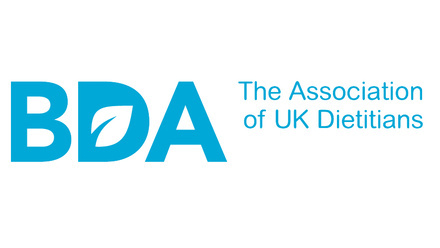Shortly before Christmas, the Welsh Government released its draft budget for 2025-26 - its penultimate budget before the potentially challenging 2026 Senedd election. Let’s have a brief look at the framing the Welsh Government hopes will keep it in power, how that matches up with the reality of its spending plans and how this is likely to impact the dietetic workforce and the BDA’s campaigns.
...a budget with new investments, aligned with this Government's priorities.
Mark Drakeford MS, Cabinet Secretary for Finance
The key emphasis of this budget is around extra money it has had available due to increased spending by the UK Government on services in England. Through its “partnership in power” narrative the Welsh Government has argued that Labour Governments at both ends of the M4 will lead to better resourced and, therefore, improved public services in Wales.
There has undoubtedly been an uplift in funding available to the Welsh Government, especially in capital (investment) spending. Questions remain, however, over whether this adequately reflects the needs of Wales’s older, poorer population, or fair dividends from the HS2 project.
The Welsh Government has claimed to be directing the additional funding towards four priorities set out by the First Minister after her “listening exercise” in the summer. These essentially equate to delivery in front line services and increased economic growth.
The FM’s first priority, which is front and centre of the Welsh Government’s narrative, is “Iechyd da – A Healthier Wales” with the key target of significantly reducing NHS Wales waiting times. More than £400m in extra funding - the vast majority of the additional day to day spending for health and social care - is being allocated to core NHS services, to reduce the longest waiting times and improving timely access to care and treatment.
This funding will cover the 2025-26 pay award, which is yet be negotiated. £175m of additional capital (investment) spending will also be allocated to the health and social care portfolio.
The total additional fund for the department, however, only amounts to an increase of 4.3% (less than most other departments) because the health and social care budget is already so big. This potentially shows why it is difficult to make a big impact on NHS delivery.
The details of how this extra funding will be spent will be set out by the Cabinet Secretary for Health and Social Care (Jeremy Miles MS) in due course, but front-line services, especially those that will reduce waiting lists, will be the priority. Concerningly, this means investment areas seen as primarily preventative, including dietetics, could be potentially deprioritised for the next 18 months before the 2026 Senedd election.
This would be very disappointing, especially when we know the beneficial impact that the dietetic profession can have on public health (and therefore NHS capacity). The Welsh Government is still committed to prioritising prevention in the long term, but we need to ensure this work is not put on the backburner.
The BDA’s Public Affairs, Policy and Campaigns team will be strongly making the case to the Cabinet Secretary and other policymakers that investment in the dietetic workforce is imperative to reduce demand for health services over the medium and long terms. We will also be emphasising the key role that dietitians play in delivery of front-line health treatment.
We’ll also be making the case to the Welsh Government that other preventative measures, such as better regulation of school meals, independent prescribing rights for dietitians and an improved food system can improve public health at large and also reduce demand on the NHS.
You can read more about our priority campaigns here.
The Welsh Government will need to work with other parties to pass this budget in March. The most likely candidate is the sole Liberal Democrat in the Senedd, Jane Dodds MS, as Plaid Cymru and the Conservatives have already ruled out supporting it. Jane Dodds has so far emphasised social care, calling for the Welsh Government to invest more in this area. We hope to persuade her to ask for increased funding for the dietetic workforce in return for her supporting the budget.
We’re looking forward to these conversations and the opportunity to promote the dietetic profession, which is such a valuable asset and to stand up for our members in Wales.







